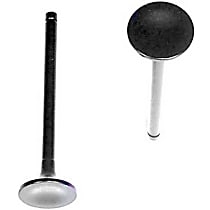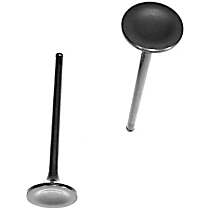{
"lazyNodes": false,
"abFitnotesFlag": false,
"abCrawlReviews": false,
"productOptionsCookie": false,
"orderDelayFlag": false,
"skipSessionCookie": false,
"covidMessage": false,
"fullTitleCookie": false,
"nrLoggerCookie": false,
"checkoutReviewCookie": false,
"productOptionSeqCookie": false,
"maintenanceFlag": false,
"bufferETACookie": false,
"multiShippingDiscountFlag": false,
"newFitmentFlag": false,
"surveyOptInFlag": false,
"crossSellFlag": false,
"skuMappingFlag": false,
"paySplitCookie": false,
"callDisableFlag": false,
"zipPaymentFlag": "u",
"hassleFreeReturn": false,
"lifetimeReplacement": false,
"cpn_off": false
}Acura Integra Exhaust Valves
Shop Catalog
![]() WARNING: This product can expose you to chemical which is known to the State of California to cause cancer and birth defects or other reproductive harm. For more information go to www.P65Warnings.ca.gov.
WARNING: This product can expose you to chemical which is known to the State of California to cause cancer and birth defects or other reproductive harm. For more information go to www.P65Warnings.ca.gov.
![]() WARNING: This product can expose you to chemical which is known to the State of California to cause cancer and birth defects or other reproductive harm. For more information go to www.P65Warnings.ca.gov.
WARNING: This product can expose you to chemical which is known to the State of California to cause cancer and birth defects or other reproductive harm. For more information go to www.P65Warnings.ca.gov.
![]() WARNING: This product can expose you to chemical which is known to the State of California to cause cancer and birth defects or other reproductive harm. For more information go to www.P65Warnings.ca.gov.
WARNING: This product can expose you to chemical which is known to the State of California to cause cancer and birth defects or other reproductive harm. For more information go to www.P65Warnings.ca.gov.
Product Questions & Answers
Customer Guides
Most Common Acura Integra Exhaust Valve Problems
An automobile's exhaust valve works inside the cylinder heads to allow fumes to exit the chamber. In this process, it turns extremely hot, reaching around 1200 to 1350 degrees Fahrenheit. And even though it is made of sturdy alloy material, it can still have a number of problems. Here are the most common problems with an Acura Integra exhaust valve:
Sticking exhaust valve
Have an assistant rev up your engine while you observe the exhaust valve, which is mounted on the exhaust manifold. Observe the plunger mechanism to see if it is moving up and down freely. If it doesn't the valve is sticking and must be cleaned right away.
Leaky exhaust gasket
When the exhaust gasket is leaky, it causes the valve to burn at high speeds and temperatures. This, in turn, will cause the engine to misfire at low speeds because it loses power. You will feel a jerking action while driving.
No compression on cylinder
The engine works effectively and efficiently when all the cylinders have compression. If any of your vehicle's cylinders does not have any compression, the exhaust valve is most likely burnt out. This will cause the engine to run slower and be more susceptible to damage. To check cylinder compression, use a compression gauge or an engine analyzer.
Irregular exhaust emissions
Another common problem with the exhaust valve is having smelly, black smoke coming from the exhaust pipe. Sometimes, you can even smell the odor of rotten eggs. This happens when the exhaust valve is totally burnt out because it allows raw fuel to enter the exhaust system. This raw fuel partially burns and leaves sooty residue inside the pipes and especially the catalytic converter. To solve this problem, you may need to replace the two manifold gaskets, oxygen sensor, plugs, and wires.
Broken exhaust valve
An exhaust valve can break either at the head or the stem. The valve may break at the head because of the stretching that is caused by the constant heat and sudden drops in temperature. When it breaks at the stem, it may be caused by heavy wear in the keeper grooves, allowing the stem to snap off. This also results when the stem height hasn't been properly installed.
The exhaust valve plays a vital role in the engine's performance. It directs the hot exhaust gases into the intake manifold, allowing a clean and efficient engine performance. It is made of sturdy alloy material, but it is constantly exposed to high temperatures that can cause it to malfunction. To minimize the problems that you may encounter with the Acura Integra exhaust valve, you need to follow these simple maintenance tips, which are so easy to do by yourself:
Remove sludge and excess deposits from the engine.
Over time, sludge that builds up in the engine can cause the exhaust valve to get stuck. To prevent this, you have to dissolve the sludge using a sludge remover. You can generally add it to the oil, run the engine for a while, and then, change the oil. This will take off the nasty sludge, and you will free yourself from the worries of a sticking exhaust valve.
Besides preventing a sticky exhaust valve, removing the sludge buildup and other excess deposits will also prevent the cylinders from creating an even hotter environment for the valves. As a result, the exhaust valve will be a step farther from getting eroded, prolonging its useful life.
Replace the exhaust valve properly.
If ever you experience freeing an exhaust valve from being stuck by using a brass hammer, it is imperative that you reinstall it properly. You see, improper replacement of the valve can shorten its lifespan, so make sure that the stem and the keeper grooves are perfectly aligned to prevent breakage. Otherwise, the stem will snap off completely.
Clean the valve and plunger mechanism.
When you observe that the plunger mechanism is not moving freely even while your assistant revs up the engine, then your Acura Integra exhaust valve already needs some cleaning. Do this by carefully taking it off from the engine compartment. Next, pour some carburetor cleaner in a small bowl. Soak the valve in the bowl for 10 minutes and spray some additional carburetor cleaner into the plunger mechanism. Afterwards, use a wire brush and a rag to clean the exhaust valve. After this, focus on cleaning the plunger mechanism to make sure no grime is left behind. Work on it until the plunger moves up and down with ease.








